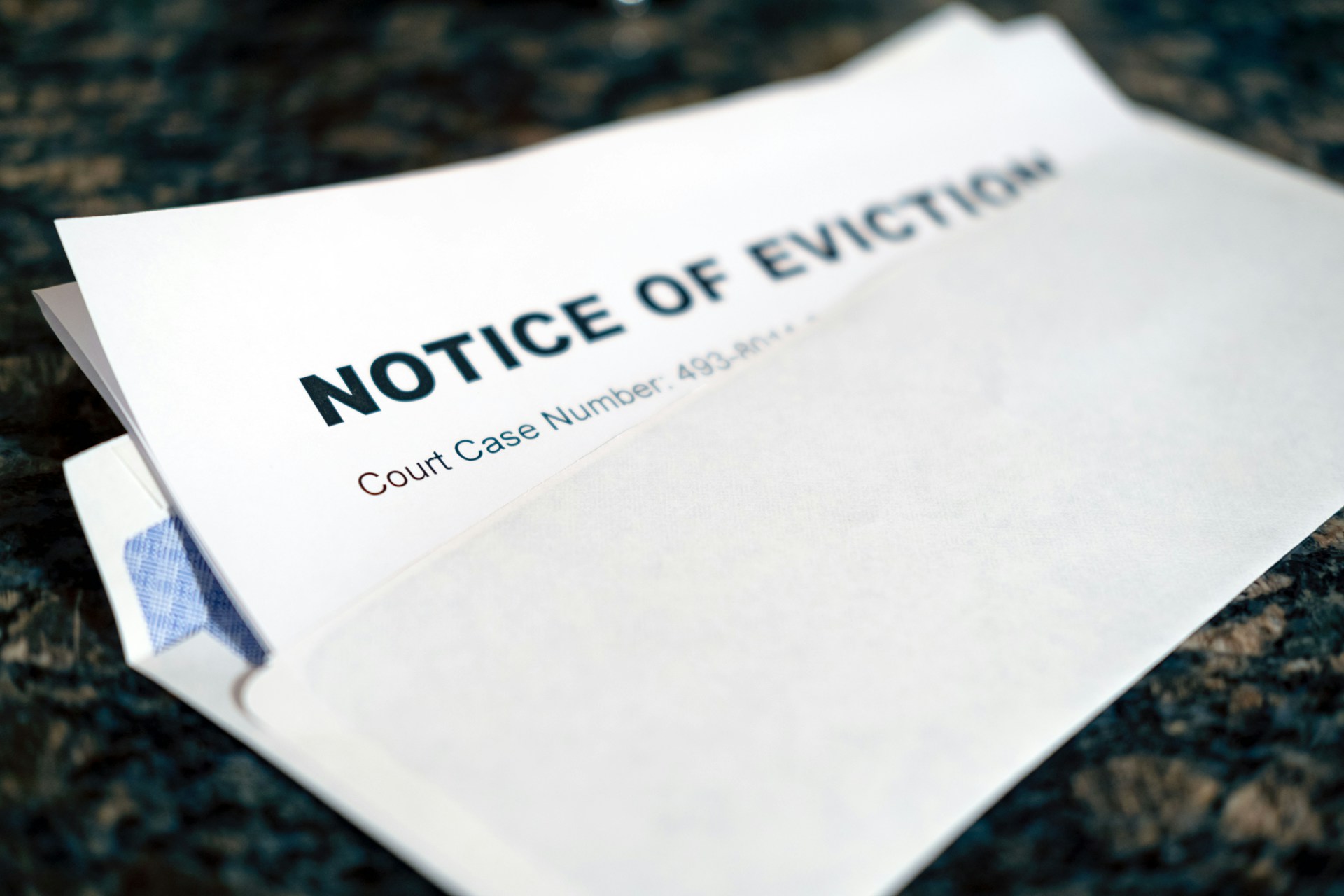
Tenant eviction in California, or any other state, must adhere to strict legal guidelines. And, a critical part of such action is process serving in California to ensure that tenants are properly informed of legal notices. Skipping or mishandling this step can lead to delays, making it essential for landlords to follow every requirement meticulously.
In this article, we’ll break down the California eviction process in detail, including timelines, steps for evicting a tenant, and the role of a process server. Whether you’re a landlord seeking to understand the legal framework or a tenant curious about your rights, this guide will provide the insights you need to ensure compliance with California law.
How Long Is the Eviction Process in California? Answers for Landlords
The eviction process in California can be a lengthy and often unpredictable journey.
According to the California Courts, the typical timeline ranges from 30 to 45 days. This period begins when eviction court forms are served to the tenant and ends when the tenant is legally required to vacate the property. However, the actual duration can vary depending on several factors, including the tenant’s response and the complexity of the case.
In cases where the tenant does not contest the eviction, the process can move along relatively quickly. Delays often occur if the tenant decides to fight the eviction in court, requests a trial, or seeks additional legal protections.
Each of these scenarios can add weeks or even months to the timeline, particularly if the case requires multiple hearings or escalates to a higher court.
Another factor that can extend the process is the availability of court dates. Eviction courts can be backlogged, leading to potential scheduling delays.
Additionally, landlords must ensure all legal procedures, such as serving notices and filing paperwork, are handled correctly. Errors at any stage can lead to further delays or even dismissal of the case, requiring landlords to restart the process.
Understanding how long is the eviction process in California can help you set realistic expectations and plan accordingly.
How to Expedite the Eviction Process
By staying organized and adhering to legal requirements, you can help ensure the eviction process in California proceeds as quickly as possible. Here are tips for landlords to expedite it.
1. Ensure Proper Notice Is Served
Hire a process server to serve the tenant appropriate legal notices, whether it’s a Notice to Quit, Notice to Pay, or Notice to Perform Covenants or Quit. With this professional, you can ensure that the notice is delivered correctly and documented.
2. File Court Papers Promptly
After the notice period expires, you must file a complaint with the court to initiate the eviction lawsuit. Delaying this step can prolong the timeline unnecessarily.
Prepare all documents in advance and file as soon as legally permitted.
3. Avoid Common Filing Errors
Mistakes in court filings, such as incorrect tenant names or incomplete information, can result in case rejections or delays. Double-check all paperwork for accuracy before submitting it.
Consulting with a legal professional can also help avoid costly errors.
4. Respond Quickly to Tenant Actions
If the tenant contests the eviction or files a counterclaim, you should respond promptly to avoid unnecessary delays.
Be proactive and prepare for court appearances or mediation sessions to keep the process on track.
5. Opt for Mediation When Possible
In some cases, landlords and tenants may resolve disputes through mediation, avoiding lengthy court trials. Mediation can save time and money while reaching a mutually agreeable solution.
Evicting a Tenant for Non-Payment of Rent in California: Key Steps
The California eviction process for non-payment of rent requires strict adherence to legal procedures to ensure the process is valid and enforceable. As a landlord, you must follow specific steps to protect your rights while complying with state laws designed to safeguard tenants.
1. Serve a Pay or Quit Notice
The eviction process begins with serving a Pay or Quit Notice to the tenant. This legal notice informs the tenant of their overdue rent and provides a deadline to either pay the amount owed or vacate the property.
In California, this notice typically gives the tenant 5 days to comply. The notice must include the correct amount due, your contact information, and payment instructions.
Professional process servers can ensure the notice is delivered properly and within the required timeframe.
2. File an Unlawful Detainer Complaint
If the tenant does not respond to the Pay or Quit Notice by paying the owed rent or moving out, you must file an Unlawful Detainer Complaint with the court. This legal action formally begins the eviction lawsuit.
When filing, ensure all required documents are accurate and complete. Mistakes in this step can cause delays or even result in the case being dismissed.
3. Serve the Court Summons and Complaint
Once the complaint is filed, the tenant must be served with the court summons and a copy of the filed complaint. This step is crucial to inform them of the pending legal action.
Again, using a professional process server ensures the documents are served correctly and on time, with proof of service provided to the court.
4. Wait for the Tenant’s Response
The tenant has a limited time, usually five business days, to respond to the court summons. If they fail to respond, you can request a default judgment, which may expedite the process.
However, if the tenant contests the eviction, the case will proceed to a hearing or trial.
5. Attend the Court Hearing
During the hearing, you must provide evidence supporting your claim, such as proof of unpaid rent, the Pay or Quit Notice, and any relevant communication with the tenant.
The judge will decide the outcome, including granting you possession of the property.
6. Obtain a Writ of Possession
If the court rules in your favor, you should request a Writ of Possession. This legal document authorizes the sheriff to remove the tenant from the property if he/she fails to leave voluntarily by the court-ordered deadline.
7. Coordinate with Law Enforcement
The final step involves working with local law enforcement to enforce the eviction. Sheriffs typically provide a notice to the tenant, giving them a short period to vacate before physical removal.
You regain possession once the property is vacated.
When to Seek Legal Consultation in California
Navigating an eviction for non-payment of rent can be complex, especially if the tenant contests the process or raises legal defenses.
Seeking legal consultation in California can provide you with guidance on your rights as a landlord, help avoid procedural errors, and ensure compliance with state laws.
By following these steps and seeking professional assistance when needed, you can complete the California eviction process for non-payment of rent effectively.
How a Process Server Can Simplify the Eviction Process in California

A process server handles the delivery of critical documents, such as eviction notices, court summons, and complaints, ensuring that tenants are informed in a timely and legally compliant manner. By hiring this professional, you can avoid common pitfalls like improper service, which can lead to delays or dismissal of the case.
With their expertise, process servers streamline the process, giving you peace of mind and helping you stay focused on managing your properties.
The Role of a Process Server in the Eviction Timeline
A process server plays a critical role in the eviction timeline, ensuring that legal documents are delivered correctly and promptly.
Serving the Initial Notice
Process servers ensure that the notice is delivered according to California law, whether through personal delivery, substituted service, or posting and mailing.
They document every step of the process, providing proof of service required by the court.
Delivering Court Summons and Complaints
If the tenant has not complied, process servers deliver the court summons and complaints to the tenant. This is a crucial step to move the eviction case forward.
Ensuring Accuracy and Compliance
Professional process servers are well-versed in California’s legal requirements. They understand how to handle challenging situations, such as locating uncooperative tenants or serving documents in unusual circumstances. Their expertise minimizes the risk of errors that could result in case delays or dismissal.
By managing these critical tasks, process servers ensure the eviction timeline remains on track, making them an indispensable part of the California eviction process.
The Cost of the California Eviction Process
The California eviction process can be expensive, with costs varying depending on the complexity of the case and whether the tenant contests the eviction.
However, according to Steadily, landlords can expect to pay an average of $450 for filing, court, and service fees. However, this is just the baseline, and the total expense can increase significantly based on additional factors.
Also, filing fees would depend on the amount of the claim. See the table below:
Claim Amount | Filing Fee |
Claims under $10,000 | $240 |
Between $10,000 and $25,000 | $385 |
Exceeding $25,000 | $435 |
Beyond these costs, you might need to pay for legal representation, especially if the eviction case becomes contested and goes to trial. Legal fees and trial-related expenses can quickly add up, making the process more costly.
Other expenses include hiring a professional process server to deliver notices and court documents. Delays caused by improper service or procedural errors can also increase costs, as you may need to restart parts of the process.
Need a Process Server to Serve Eviction Papers in California?
Evicting a tenant requires strict adherence to legal procedures to ensure the process is fair, enforceable, and compliant with state laws. From serving notices to filing court documents, each step of the California eviction process must be handled correctly to avoid costly delays or dismissals.
Remember—hiring a professional process server simplifies the eviction process by ensuring all notices and documents are delivered accurately and on time. With their expertise, you can focus on managing your property while avoiding the pitfalls of improper service.
If you’re ready to proceed with an eviction and need a reliable process server, D&R Legal Process Service is here to help. Contact us today to ensure your eviction papers are served efficiently and in full compliance with state law.
Frequently Asked Questions About the Eviction Process in California?
1. How long does the eviction process take in California?
The eviction process in California typically takes 30 to 45 days, starting from when the landlord serves the eviction notice to when the tenant must vacate the property. However, the timeline can be extended if the tenant contests the eviction, requests a trial, or if there are delays in court scheduling.
2. What types of notices are required to start the eviction process?
The type of notice depends on the reason for eviction. Common notices include:
- Pay or Quit Notice
- Notice to Perform Covenants or Quit
- Unconditional Quit Notice.
3. What happens if a tenant contests the eviction?
If a tenant contests the eviction, the case will proceed to court. The tenant must file a response to the landlord’s complaint, and both parties will present their case before a judge. If the judge rules in favor of the landlord, a Writ of Possession will be issued to remove the tenant.
4. Can a landlord evict a tenant without going to court?
No, in California, a landlord cannot legally evict a tenant without going through the court process. Attempting to evict a tenant without a court order, such as locking them out or shutting off utilities, is considered illegal and could result in legal consequences.
5. What role does a process server play in the eviction process?
A process server ensures that all legal notices and court documents are served to the tenant correctly and within the required timeframes. This is a critical step in the eviction process, as improper service can delay or even invalidate the case.







